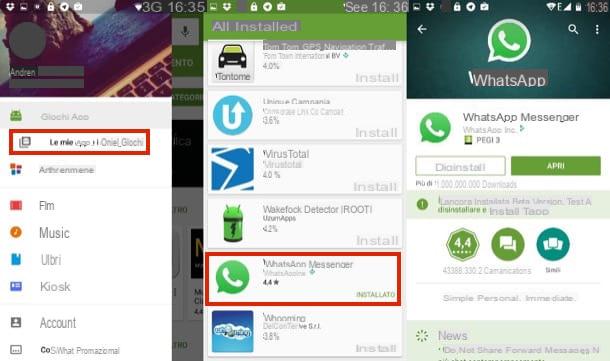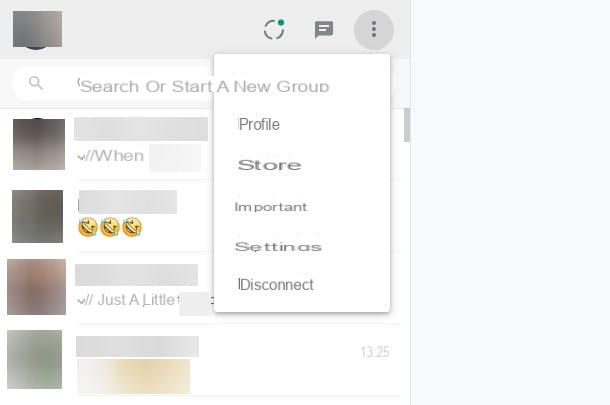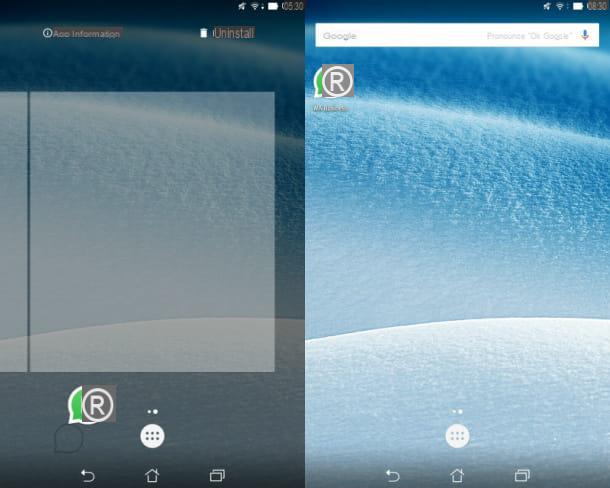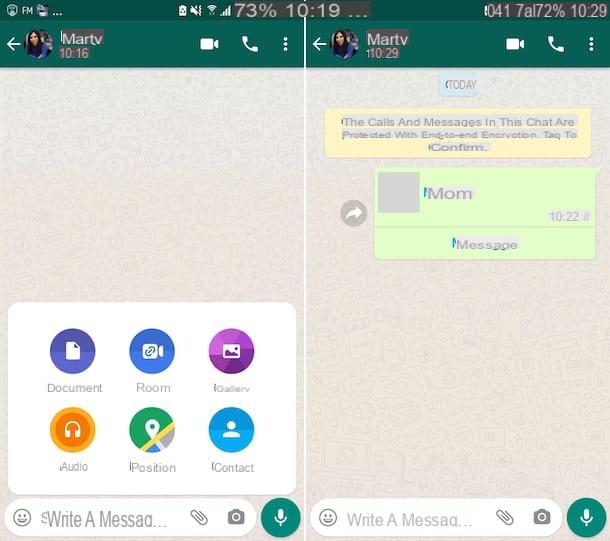Here are all the viruses that have spread on WhatsApp in recent years, including the latest malware.

Article index:
- The threats on WhatsApp
- Virus for WhatsApp via message
- Malware via WhatsApp contact
- Fake emoticons containing viruses
- WhatsApp groups scammers
- Conclusions
The threats on WhatsApp
WhastApp, Mark Zuckerberg's proprietary application, is now the most widely used instant messaging software in the world. With over a billion users, it has reached very high figures, outpacing competitors such as Telegram and Viber. Precisely for this reason it has become an easy target for hackers and malicious people create viruses capable of stealing sensitive data and destroying the devices on which they are installed. In the last year, cases and reports of scams have intensified e virus via WhatsApp, many users have had to switch devices because they have been rendered completely unusable by malicious programs spread through conversations.
The method used to infect the terminals is very simple, similar to that seen for the Mazar virus. A message arrives on WhastApp with a link inside, the curious user clicks the link and logs on to the network. This starts the download e installing the malicious code which causes damage to the smartphone or tablet, both Android and Apple.
In this article, I show you some of the major viruses reported by users.
Virus for WhatsApp via message
A first type of virus is the one that spreads by message. It indicates that a software update is available, which can be performed by clicking on a link shown. As soon as the person clicks the link, the virus is downloaded and installed.
The main problem is that this malware has the characteristic of opening popup windows on the terminal, which invite you to enter sensitive data, such as credit card numbers and other confidential information. In this way the scammers are able to steal the account data and do damage. This virus has been reported under the names Andr / InfoStl-AZ and Andr / InfoStl-BM.
Malware via WhatsApp contact

In the past there has been another annoying virus called Priyanka. It was always transmitted via WhatsApp, but this time with other methods. The user directly received a contact called Priyanka, and if the person added it, it ended up infecting the device.
In this case the damage was not very serious, in fact the virus added many contacts to the smartphone address book, all named Priyanka. That was enough to solve the problem reset WhatsApp. When you get contacts to add, pay close attention to the source that sends them to you.
Fake emoticons containing viruses
Another type of virus that had recently spread among the various conversations, indicated to download the new emoticons 2016. Suddenly many people found themselves with a message inviting them to install the latest emoticons released by WhatsApp.
By clicking on the given link, it downloaded the virus it was capable of auto-send messages to the entire telephone book, spreading in a completely automatic way. I always advise you to check for updates of the various programs using Google Play. Only in this way are you sure to install controlled and non-third-party applications and updates.
WhatsApp groups scammers

Another type of threat has recently been expanding. In this case it is a Whatsapp group, called just like the name of the application. The user is added to this group by a number prefixed with +44 (England), and the following message is subsequently delivered with a multimedia file attached:
«Congratulations, your phone number + 39XXXXXXXXXX has been randomly selected as today's lucky mobile device! You have one (1) unclaimed award. Claim your prize now! "
Clearly it is a scam, in fact, clicking the file you go to download the attachment by installing the virus for WhatsApp. When it is installed, the malware renders the mobile phone unusable and the victim cannot do anything else to solve the problem. In addition, all the files are taken hostage, and to get them back it is necessary to pay a high sum. In practice it is a virus very similar to cryptolocker.
Such a virus is spreading both on devices Android and Apple. So in this case you absolutely don't have to click the attached file. The only thing you have to do is exit the group, permanently deleting it. In this way, damage is avoided and the virus does not cause any problems because it is not downloaded.
Virus for WhatsApp: conclusions
As you have seen in this article, there are many systems used by attackers for infect smartphones via WhatsApp. In the future we must be ready to face every new attack, avoiding that our data and our privacy are affected. In order to avoid problems, it is sufficient to follow some general advice: always check the source from which we receive the message, identify the people in the group in which we are added, do not click on the links coming from strangers or from our contacts, who may have sent the message without their knowledge. It is also advisable to make updates only from Google Play, without relying on external sites and sources.
If you apply these simple tips, you will surely avoid most of the viruses and malware available on WhatsApp. You might as well install an antivirus, but unfortunately some malicious files are not recognized and therefore may be reported safe when they are not. If you have been infected with a virus and you have an unusable Android or Apple terminal, we can help you recover files on your smartphone.


























